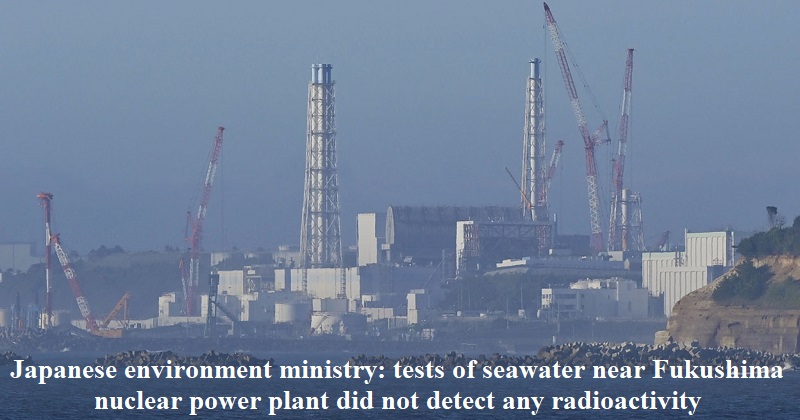
The Japanese environment ministry announced on Sunday (August 27) that examinations of seawater near the Fukushima nuclear power plant did not register any presence of radioactivity. The nation had initiated the release of water from the plant into the Pacific Ocean on Thursday, resulting in protests both within the country and from neighboring nations. As reported by Reuters, the government assured the public that the water had been treated to eliminate most radioactive components except for tritium, a radioactive hydrogen isotope.
According to the news agency, samples collected from 11 locations close to the plant were tested by the ministry. The results indicated that the concentrations of tritium were beneath the lower limit of detection, measuring 7 to 8 becquerels of tritium per liter. The ministry further stated that these levels would not pose any harmful effects on human health or the environment.
In a conversation with Reuters, a ministry official mentioned that test outcomes would be made public every week for at least the subsequent three months.
However, Japan’s decision to release water from the Fukushima nuclear power plant has provoked discontent among citizens. Reports from Reuters highlighted that various organizations had initiated a campaign to gather signatures in opposition to the discharge of contaminated water into the sea in early August. As of Sunday, more than 60,000 signatures had been amassed from various regions across the country.
Local media journalist Fujikura Hidekazu revealed, “The number of signatures on the Internet exceeded 60,000 yesterday, with over 50,000 signatures being added following the Cabinet’s decision to move forward with the discharge on Tuesday.” Hidekazu emphasized that the government was blatantly neglecting the sentiments of residents and warned that this enforced discharge would undoubtedly inflict damage on crucial sectors like agriculture and fisheries.
With the impending release of nuclear-contaminated water, both the agricultural and fishing industries are expected to face heightened crises. Many individuals are concerned that Fukushima’s fishing sector will struggle to recover, highlighting the profound impact of such a decision on local livelihoods and economic activities.

Post Your Comments